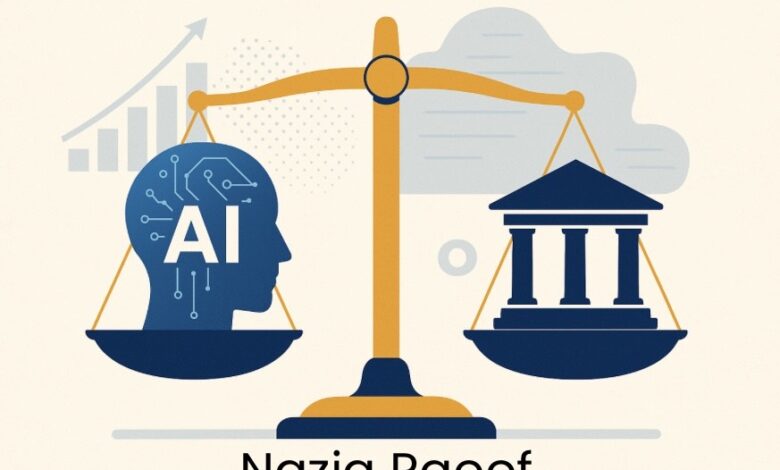
Artificial Intelligence (AI) is transforming financial services—from fraud detection to robo-advisors. As a Board Member and author dedicated to ethical AI, with a 20-year background including roles at Lehman Brothers, Northern Trust, CIBC, and Wintrust, I’ve observed how banks, fintechs, and insurers are implementing new governance frameworks, ethical oversight, and AI audits to drive innovation responsibly.
The Rise of AI in Financial Services
AI is revolutionizing core functions: fraud detection systems analyze transaction patterns in real-time (World Economic Forum), robo-advisors democratize investing (Nature), and alternative data models enhance credit scoring, expanding financial inclusion (Holistic AI). While these advancements promise greater efficiency and access, they also introduce new risks that regulators are keen to address.
Governance, Roles & Frameworks
Recent research emphasizes the importance of robust AI governance and ethics programs. Studies from the World Economic Forum (WEF report), the BIS (BIS insights), and academic reviews (Forbes) consistently stress that strong governance structures—such as AI ethics committees, independent audits, and cross-functional oversight—are crucial for aligning AI initiatives with compliance and public trust.
Boards are increasingly accountable for AI oversight, with leadership roles dedicated to ensuring models are fair, transparent, and explainable. Institutions are aligning with evolving global standards, including the EU AI Act and U.S. Responsible AI guidelines (Cloud Security Alliance).
Responsible AI and Human Oversight
A proactive approach includes regular AI audits to detect bias and performance drift, coupled with integrated explainability tools. As emphasized in my book on AI ethics, embedding human values in AI systems is fundamental. Human oversight must remain a cornerstone, ensuring critical decisions retain human judgment and accountability (American College Center for Ethics).
Cognitive Impact and Ethical Considerations
Emerging studies warn of the cognitive risks of over-reliance on AI. Research from MIT (MIT study) and SBS Swiss Business School (Phys.org) suggests excessive AI use can diminish critical thinking, memory retention, and overall cognitive health. In financial services—where decisions can shape lives—maintaining human expertise alongside AI systems is vital.
Balancing Innovation with Compliance
Successful financial institutions integrate AI innovation with a multi-layered compliance strategy, involving business, technology, and risk teams. They foster a culture of ethical responsibility while ensuring alignment with regulatory expectations.
Conclusion
AI’s promise in financial services is significant, but it must be harnessed with a steadfast commitment to governance, ethics, and cognitive well-being. By embedding strong frameworks, enforcing human oversight, and prioritizing ethical principles, financial institutions can lead responsibly—delivering innovation that supports, rather than undermines, trust and long-term value.



